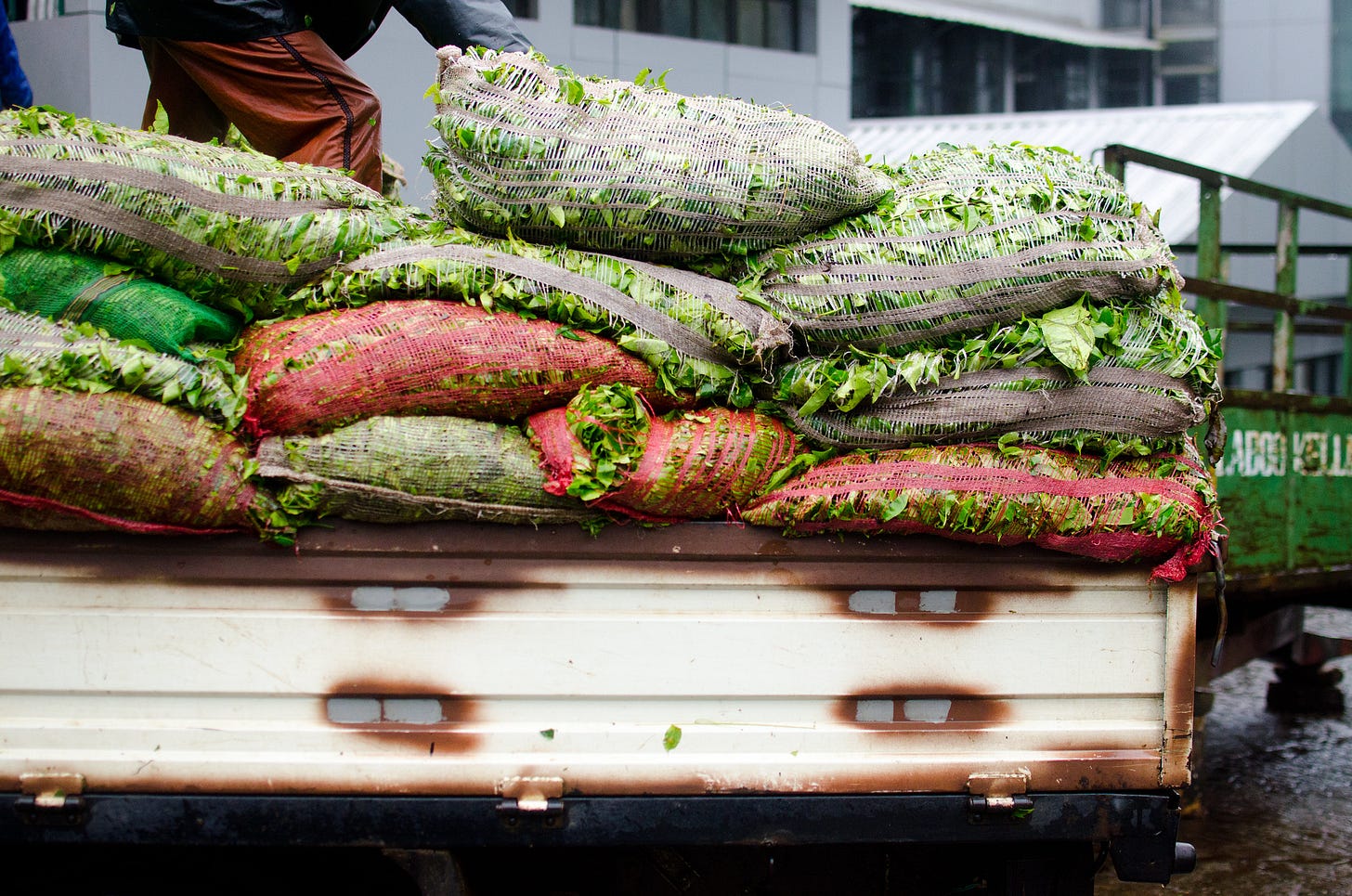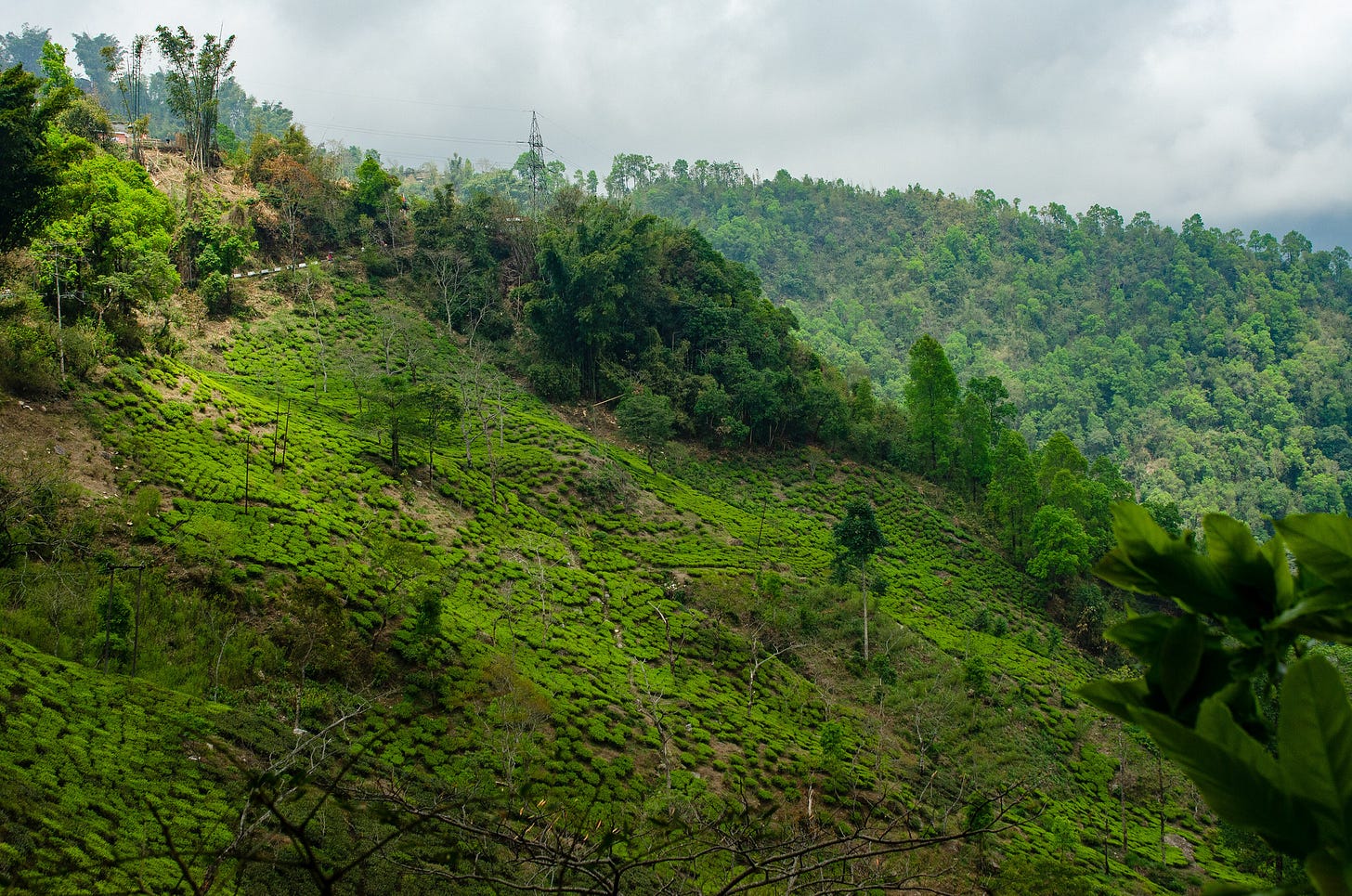Three ways tea is grown
A Leafhopper diary + cultivation models and their discontents.
What’s hopping
In the next few weeks I’ll be experimenting with different formats for Leafhopper stories beyond the typical tea spotlights. The inside scoop is there are only so many tea companies out there and I want to keep my rotation fresh. But I also want to explore other ways to talk about tea and am curious what resonates with you. I’m calling today’s diaristic grab-bag What’s hopping. Do you dig it? Do you want something different from your rambling tea guy? Please share your feedback with max.falkowitz@gmail.com or by replying to this email!
What I’m drinking: Nepal Summer is one of my favorite productions from the Jun Chiyabari Estate in Nepal. Like other newfangled Indian and Himalayan oolongs, it has this nutty, woody vibe crossed with orthodox tea spice, but this version brings in bright passion fruit and the buttery crispness of a well baked shortbread cookie corner. Fun tea.
Reading: The Washington Post has a feature on yaupon, the indigenous herbal tea made from holly (which has the great scientific name Ilex vomitoria). Reporter KC Hysmith posits that yaupon may see consumer growth in light of the current regime’s tariff policy, like it did in colonial times when British tea taxes inspired that big Boston cold brew session. I don’t see this foraged good getting the capital injection necessary for commercial scale, and to be honest I’ve never found a yaupon tea I’ve loved, but who knows. CatSpring Yaupon in Texas is making an instant version with fractional frozen crystals now. Their heavy roasted looseleaf style tastes like tangy hojicha.
Thinking about: A sip of plain water after a cup of tea is a great way to highlight the brew’s aftertaste. This is inspired by chewing on an ice chip while drinking Nepal Summer. There was a burst of sweetness and more of the buttery toffee notes that were otherwise subdued by stronger flavors. Try it with room temperature and chilled water and see how a brew reveals new sides of itself.
Looking into: A few people like Mark Mooradian at Karnak Farm are processing herbal teas using actual tea techniques like rolling and oxidation. The brews taste much more tea-like with depth, dimension, and some weight on the tongue. I have a story lined up with one new producer and am looking for more, if readers have any leads.
Planning: I’ll be scooping homemade tea-flavored ice creams with In Pursuit of Tea on August 1st from 5 to 7pm. Join us for a happy hour at IPOT’s New York office and try some Rocky Tea Horse Road for yourself! Get tickets here.
The business of growing tea
Today’s deep dive is inspired by my talk last weekend about the future of the tea industry. In that talk I covered themes of labor, equity, and climate in the tea business, but that conversation requires some understanding of the ways tea is grown and sold. Broadly speaking there are three models of tea cultivation that you’ll find in the 40+ countries that produce tea. Each has their ups and downs, so it pays to know the difference.
Keep reading with a 7-day free trial
Subscribe to Leafhopper to keep reading this post and get 7 days of free access to the full post archives.





